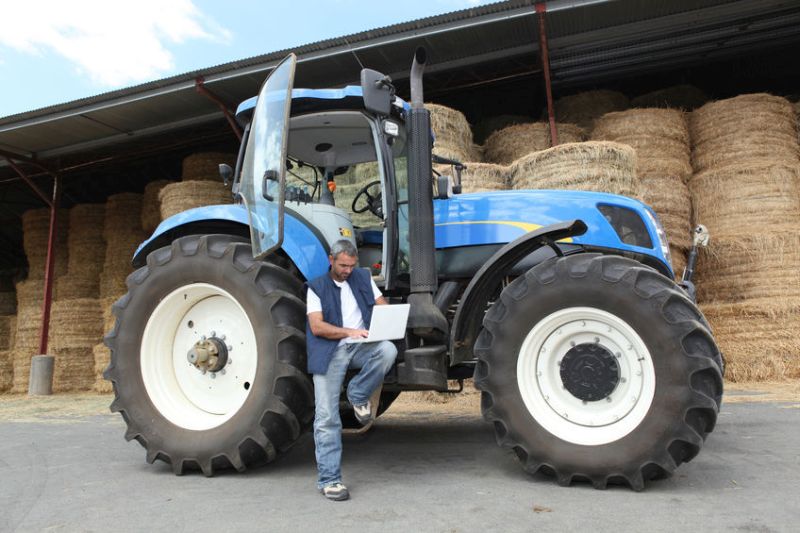
More than 4 in 10 farmers still don’t have adequate broadband vital to conduct their business in the 21st century, according to a new survey.
Farm businesses are reliant on connectivity more than ever before, from increasing productivity through monitoring crops and livestock to diversification.
But the new NFU survey shows it’s almost impossible to run a modern-day business without it, while a lack of mobile phone signal can impact on issues like isolation and mental health.
The union's vice president Stuart Roberts said British farming is an industry which relies on having fast and reliable access to the internet.
“It really is completely unacceptable that in this high-tech digital age we appear to have a two-tier system of haves and have nots,” he said.
“As our new survey shows, more than 4 in 10 of our members feel they still don’t have adequate access to broadband services needed to run a modern-day farming business.
“It’s not just the farming business that’s impacted. A lack of mobile signal can have serious consequences if you need to call for help in an emergency, and issues of mental wellbeing from feeling isolated can also be affected.”
Mr Roberts said the current pace of broadband change and mobile connectivity in rural Britain is 'unacceptably too slow'.
He said the introduction of 5G and fibre broadband technology in cities means that, without action, the gap between urban and rural areas will continue to widen.
“That is why we are urging government and the telecommunications industry to make tackling the lack of rural connectivity a priority.
“We will continue to campaign for investment in the country’s digital infrastructure, so farming businesses and the rural economy can continue to meet their huge potential not only as food producers but in helping to tackle climate change and deliver on our net zero ambitions,” Mr Roberts added.
The survey, released today (14 January), is based on 817 farmers responding to a telephone or online survey between September 2-29 2019 and providing their actual coverage experience.
It captures data not collected by others, for example as many farms fall within postcodes with less than four broadband lines and such geographical areas not reported on by Ofcom for data protection reasons.
